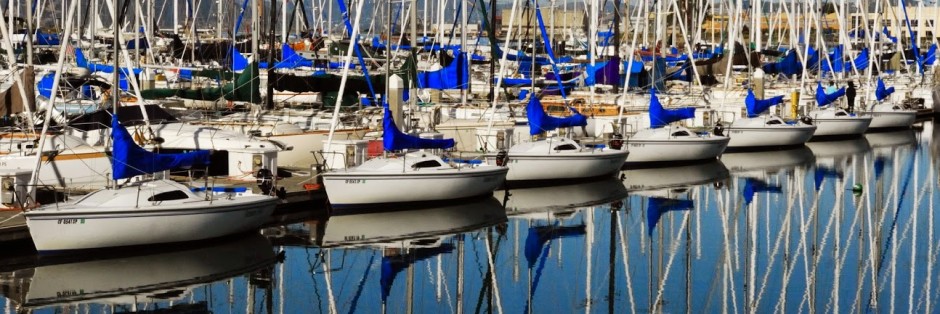Sailing is one of the safest sports. Have you ever wondered why? It’s actually quite simple. It’s called thinking ahead. Something that the best of skippers do without even “thinking” about it. When I first started sailing, someone made a comment that if you didn’t think of it 20 minutes ago, you probably waited too long. The only thing that happens fast on a sailboat under normal conditions is an emergency. By thinking and planning ahead, you are going to reduce the emergencies you experience and the ones you do have will be controlled and much less scary. Here are some practical examples:
Before you leave the dock, ask yourself “what will I do if the motor quits.” Unless you have sails “at the ready” the answer is . get blown into the rocks. So, how do you prevent that? Start by getting the sail cover(s) off and stowed. Next rig the halyards. Then, just to be safe, re-tie the sail ties into knots that you know will release easily, and position the knots where you can quickly and easily get to them. While you are at it, make sure the sheets are ready, and the furling lines are not tangled.
But what happens if the motor dies and the sails are useless. Maybe there is no wind and the current is pushing you into the rocks. Is the anchor ready? Is the rode free to run? I learned this lesson “the easy way” once. While checking out a boat, I found the anchor lodged in a strange spot that took nearly 30 minutes to free. Fortunately, I was still at the dock.
How about reefing? Did you check the forecast before you left home? Are you aware that a storm front is expected at 2:00 and when it arrives, the 10 knot Southwest breeze you have been enjoying is going to increase to 35 knots from the North. If the forecast is for 10 knots from the SW in the morning, building to 25 in the afternoon, are you watching the water for white caps. It’s easy to reef when the white caps start . not as easy when you are overpowered and out of control in 25 knots.
One last thought. What happens if YOU fall overboard. Is every member of your crew able to do a recovery? If not, you are placing yourself and everyone on your boat in danger! Take every opportunity to practice crew overboard recoveries. Here’s a thought . when you see some trash floating in the bay . coach one of your crew through a crew overboard recovery. I have started carrying a small fish net for just that purpose, and I have no shortage of opportunities. If you do, you have accomplished three good things. You and your crew are safer . you are better sailor (you really have to learn when you teach someone else), and the bay is a little cleaner.
Be prepared . think ahead … have fun.
By Don Gilzean, Tradewinds Instructor
– If you have a Skipper’s Tip to share, or a subject you’d like us to write one about, email it to Matt (Matt@TradewindsSailing.com)

All excellent advice, I will make sure I use all of those. Its easy to get complaisant sometimes!